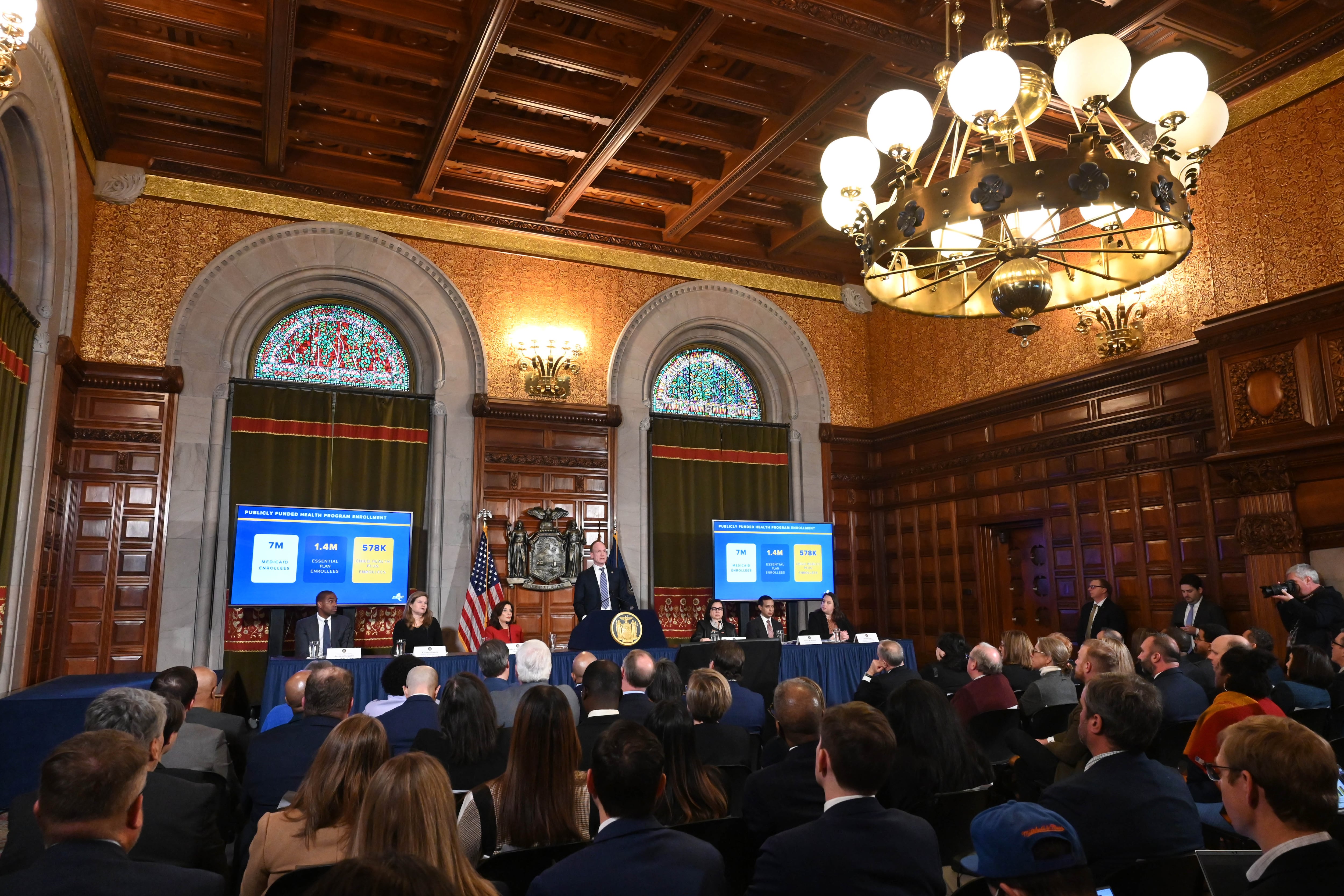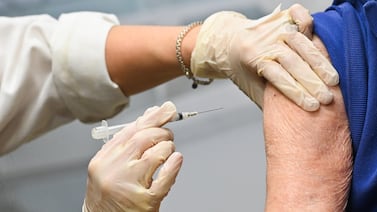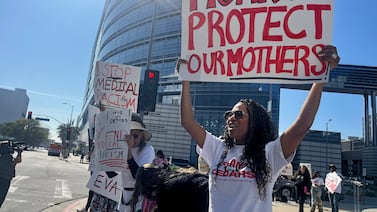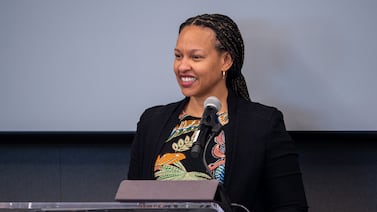Public health, explained: Sign up to receive Healthbeat’s free New York City newsletter here.
The specter of deep cuts to federal funding looms over New York’s state health budget this legislative session.
In recent weeks, the Trump administration has attempted to freeze federal funding to states and slash billions of dollars from research institutions, while congressional Republicans are targeting Medicaid, the health insurance program for low-income Americans. Any of those cuts, if enacted, could have significant impacts on New York, which relies heavily on the federal government for its health funding.
“We all know the real crisis is at the federal level, and we don’t know what’s coming next,” Sen. Liz Krueger, a Manhattan Democrat and chair of the Senate finance committee, said in Albany on Tuesday during a joint legislative hearing on the 2026 fiscal year health budget.
New York relies on federal funds
In announcing her $252 billion executive budget last month, Gov. Kathy Hochul focused on efforts to make New York more affordable — but provided few contingency plans for potentially steep federal cuts. The state Health Department’s proposed budget would be about 45% of New York’s total proposed budget, largely due to Medicaid spending.
In Albany, Dr. James McDonald, the state health commissioner, told lawmakers during the budget hearing that the “federal transition” was “creating a little bit of impact for our budget.” But the proposed health budget assumed that federal commitments would be upheld, he said.
“The budget that we’re going to talk about was predicated on the federal government fulfilling its obligation to New Yorkers, maintaining its existing agreements with the New York State Department Health,” he said.
Federal funding accounts for about 65% of the Health Department’s proposed budget, primarily due to Medicaid and the Essential Plan, a health insurance program for lower-income New Yorkers, according to McDonald. About $7 billion of the state Health Department’s $113.6 billion proposed budget is earmarked for other health programs, including public health work. Hochul has proposed $1 billion in new funding for safety-net hospitals, as well as investments in reproductive health and maternal health.
During the budget hearing, lawmakers pressed McDonald to provide stronger leadership, and swifter guidance to New York hospitals, in the wake of President Donald Trump’s disruptive executive orders.
In recent weeks, some major New York City hospitals have started canceling appointments for gender-affirming care for minors, or removing references to such care from their websites.
Sen. Brad Hoylman-Sigal, a Manhattan Democrat, called decisions to pause appointments “outrageous and dangerous” and chided McDonald for not directing hospitals on the issue.
“There seems to be a roll-over mentality from the State of New York when it comes to federal directives,” he said. “This has to stop.”
Krueger also pressed McDonald on what the Health Department has done to ensure that undocumented migrants can access health care without fear of deportation by U.S. Immigration and Customs Enforcement.
“Isn’t it a public health crisis for all of us, if people don’t get the health care they need because they think they could be at risk of ICE coming into the location and taking them away?” she asked.
On both issues, McDonald said the department would soon release guidance for hospitals.
Advocates say threat of cuts is ‘very real’
Health care advocates who testified at the budget hearing sounded an urgent alarm about what potential federal cuts might mean for state health programs — and many urged lawmakers to take a stand.
Bea Grause, president of the Healthcare Association of New York State, warned that whether by executive orders or congressional acts, “New York faces the very real possibility of significantly reduced or eliminated federal funding this year.”
The threat of federal funding cuts is “very, very real,” for New York, said Helen Schaub, the vice president and interim political director of 1199 SEIU United Healthcare Workers East. Schaub noted that a potential $2 trillion cut from Medicaid, which is supported by some congressional Republicans, would represent about a third of Medicaid spending projected over the next decade.
“If they get anywhere close to that number, that is a very dramatic cut to our state,” Schaub said.
Bill Hammond, the senior fellow for health policy at the Empire Center for Public Policy, a fiscally conservative think tank, warned that New York’s continued expansion of Medicaid makes the state especially vulnerable to potential federal reductions.
“If there is significant cutting to Medicaid, New York is going to bear a disproportionate share of it, because New York is disproportionately a big spender on Medicaid,” he said.
This week, New York Attorney General Letitia James joined other attorneys general to sue the Trump administration over its attempt to reduce research grant funding from the National Institutes of Health, which could impact about 250 institutions across the state. A federal judge has issued a temporary order halting the policy.
Kenneth Raske, president of the Greater New York Hospital Association, a nonprofit that lobbies on behalf of regional hospitals, noted that the funding reduction could mean a $850 million loss for New York institutions.
“Let’s be clear: We have a clear and present danger, and it’s in Washington,” he said.
In the face of mounting fears about federal cuts, Linda Beers, the president of the New York State Association of County Health Officials and the director of public health in Essex County, urged lawmakers to remain focused on public health work.
“Uncertainty for public health has rarely been more profound than it is today,” she said. “So we look to you, our state leaders and partners, to be a reliable, steady hand that ensures our public health infrastructure.”
Eliza Fawcett is a reporter covering public health in New York City for Healthbeat. Contact Eliza at efawcett@healthbeat.org.






